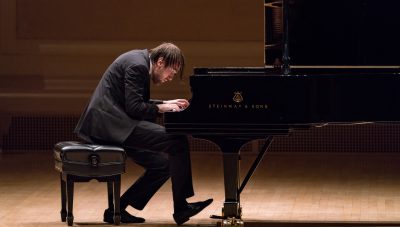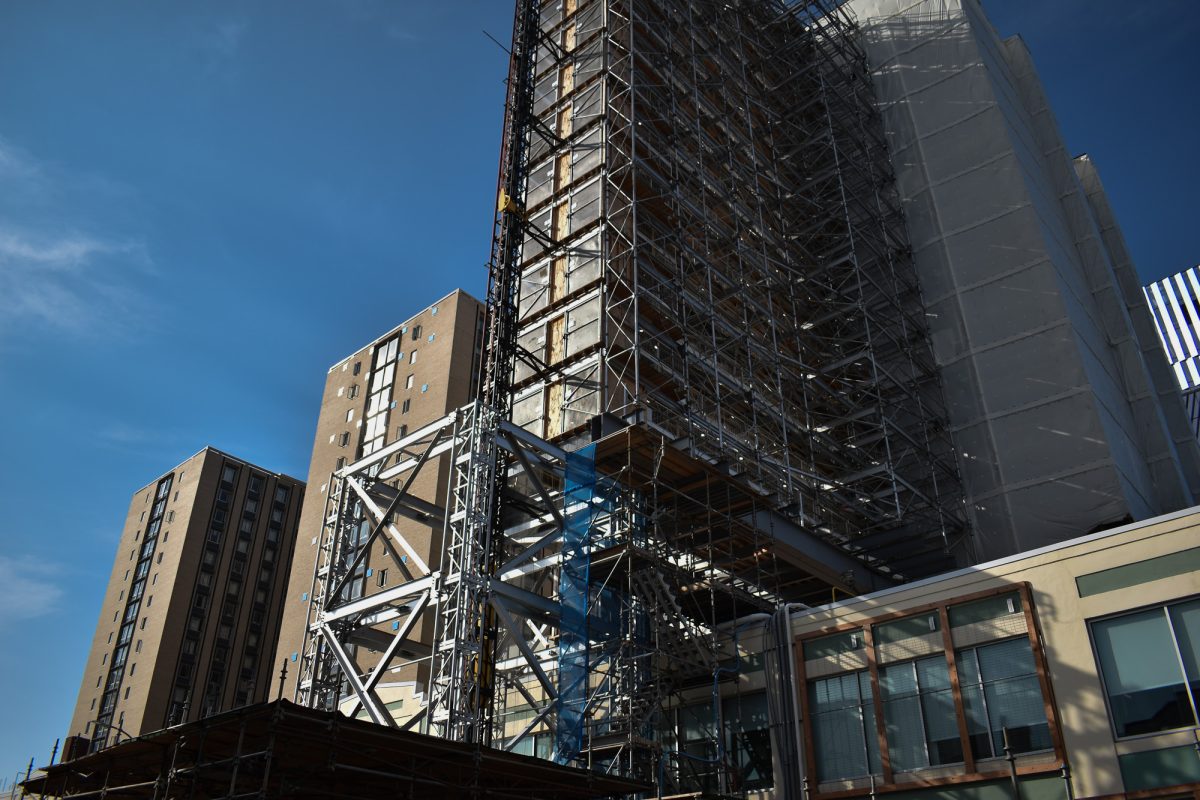
The Oscar-winning 1996 film “Shine” gave viewers a taste of the sheer madness that is the music of classical composer Sergei Rachmaninoff.
Centered around real-life Australian pianist David Helfgott’s journey toward perfecting the Rachmaninoff Piano Concerto No. 3 in D minor, shortened as the “Rach 3,” the film chronicles the aspiring musician’s slow descent into insanity.
After his performance of the 40-minute monstrosity of a piece at the Royal College of Music in London, Helfgott collapses to the floor from mental overload. This breakdown eventually leads to him being institutionalized for his development of schizophrenia.
Although the movie is a highly dramatized biopic of Helfgott’s progression into mental instability, “Shine” serves as a demonstration of how horrifyingly difficult Rachmaninoff’s piano repertoire is.
With this context, any pianist who can nail what has been called the “Mount Everest” of piano is worthy of immense praise. Luckily for Russian pianist Daniil Trifonov, he’s more than used to this kind of recognition. Given his history as a child piano prodigy, Trifonov has unsurprisingly risen through the ranks.
After honing his craft at the Cleveland Institute of Music, Trifonov went on to place third at the International Chopin Piano Competition in 2010 and first at the 2011 Tchaikovsky Competition, two of the most prestigious contests in the world for the instrument.
So when Trifonov took the stage at Boston’s Symphony Hall on Thursday, the crowd was in for a treat. Backed by recent Grammy-winning conductor Andris Nelsons, Trifonov put on a beguiling rendition of Rachmaninoff’s infamous concerto.
From the onset, Trifonov served notice that he would not be intimidated by the stature of the piece. Throughout much of the performance, especially the more difficult portions, he wore a smile on his face — making it seem as though there was no possibility of his making a mistake in front of the sold-out Boston audience.
To a fan of Trifonov, this performance may not have been much of a surprise, as he is known for taking on immensely difficult classical repertoire at even the young age of 28.
In 2016, Trifonov released his Grammy-winning album “Transcendental,” on which he played Franz Liszt’s 12 Transcendental études, five concert études in total and six revised étude transcriptions, which were composed by Niccolò Paganini.
The album versions of these pieces are indubitably impressive, but video versions of Trifonov’s performances give a closer look into his emotive demeanor while playing.
His video performance of Liszt’s fourth Transcendental étude “Mazeppa” — arguably the most difficult of the 12 — shows him jabbing his fingers at the piano and then quickly retracting them, combined with a small hop from his piano bench as though it was spring-loaded.
This same frantic emotion was securely evident throughout the more intense bars of each movement, particularly the cadenzas in the first.
When the backing orchestra was tacet, the cascading microphones of the symphony hall captured Trifonov’s every grunt, as though the piece was physically beating him. And during rests, he stared almost angrily at his concert grand, eagerly awaiting his next part.
Of course, the explosive coda of the “Rach 3” was the climax of the night. Though Trifonov was the center of the performance, the orchestra made it clear their part would not be forgotten as the members turned to the last page of their sheet music.
Their bellowing sound perfectly accompanied Trifonov’s final bars of descending octaves until the triumphant conclusion of the “Rach 3.”
Though his chipper facial expressions may not have shown it, Trifonov’s sweat-covered face and hair revealed the immense virtuosity required to play the 40-minute piece as perfectly as he did. And for it, he received a resounding ovation — deservedly so.
Trifonov closed out this portion of the night with an encore, a performance of the second movement of Prokofiev’s Eighth Piano Sonata in B-flat major. The calm movement provided a pleasant contrast to the vivacious concerto that preceded it and a much-needed break for Trifonov’s tired hands.
Perhaps the most impressive aspect of the night is that Trifonov is already, undoubtedly, one of classical music’s all-time greats even at such a remarkably young age. It shows in how he has received acclaim from the likes of Martha Argerich and Nelson Freire.
And now, Trifonov has taken on the “Mount Everest” of classical piano with an expression on his face that indicated it was just a walk in the park — all without collapsing from a breakdown at the end of the piece.















































































































